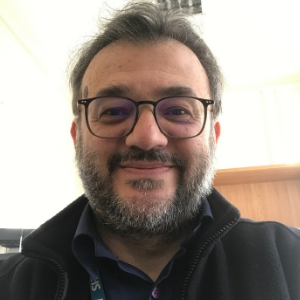
A leading mental health clinician and researcher in Yorkshire and Humber has gone from fleeing war-torn Afghanistan as a teenager to being awarded a British Citizen Award and being appointed as a NIHR Clinical Research Specialty Lead.
Published: 02 October 2020
Read more about how you can take your first or next steps on your path in research.
Abdullah's path in research
Dr Abdullah Kraam, a consultant child and adolescent psychiatrist, took up the role of Child and Adolescent Mental Health Service (CAMHS) research lead for the NIHR CRN in Yorkshire and Humber in May 2020 after more than 20 years working in the specialty.
As a teenager, Dr Kraam fled war-torn Afghanistan with his family to Germany where he would go on to undertake his medical training. Following this he moved to England in 1999 and later became a consultant in Leeds. After this Dr Kraam established the Forensic Child and Adolescent Mental Health Service, and it was for this work in particular that he was awarded a British Citizen Award for his services to healthcare.
Speaking about his new role with NIHR, Dr Kraam said: “There are so many opportunities for health and care professionals to get involved in research, and I am really excited that as part of my role I will be able to help raise awareness of these important opportunities, particularly in mental health.”
Day-to-day, Dr Kraam will use his expertise to oversee the management and coordination of child and adolescent mental health research across Yorkshire and Humber.
Dr Kraam has also worked on a number of research studies and is currently a co-investigator exploring how Attention Deficit Hyperactivity Disorder, commonly known as ADHD, can be diagnosed in young people in criminal justice secure sites in England. This work is being funded as part of the NIHR’s Research for Patient Benefit programme.
Why research matters
Research has always played a key part in Dr Kraam’s career and even in his early days of training, he knew the importance of research and the benefits it can bring to the care he and his colleagues deliver to patients.
He explained: “Patients, service-users and the wider public are at the centre of any health and care professional’s role and research ensures that we can continue to push boundaries and provide the highest quality, evidence-based care and treatments.”
Research also informs the guidelines that health and care professionals follow, and Dr Kraam has sat on three National Institute for Clinical Excellence (NICE) guideline committees. “It is a fantastic opportunity to be involved in developing national guidance and seeing first-hand how valuable research is to inform and ensure guidance continues to improve care and working practices.”
A new perspective
More recently, Dr Kraam had a period suffering from depression, and his experiences have given him a new understanding when caring for his patients as well as undertaking research.
He said: “I’ve helped hundreds of young people and their families through challenging times during my career, but this experience has really given me a new perspective and ability to connect with patients even more than before.”
Top tips
Health and care professionals may often find it daunting to take their first step to include research in their career. Dr Kraam has shared his two principles for others wanting to pursue a career in research: network and be brave.
Dr Kraam said: “Starting off with these two simple principles can help your path in research become much smoother and help you realise the breadth of opportunities available. Speaking to people in your own organisation, such as a research and development team, or peers working in other organisations can have a huge impact in helping you take your first steps.
“I am also a big believer that there is no such thing as a bad idea. So be brave and say what you think. Even if the idea itself does not lead directly to a research project, it can be the vital flint needed to spark off other ideas. You can always learn from the things that may not go to plan.”
The NIHR has a breadth of opportunities for health and care professionals wanting to get involved in research including the recently launched Mental Health Incubator, a virtual community to encourage networking, training and career development support.
Read more about NIHR Incubators or visit the campaign site for other ways you can start or take the next step on your path in research.


